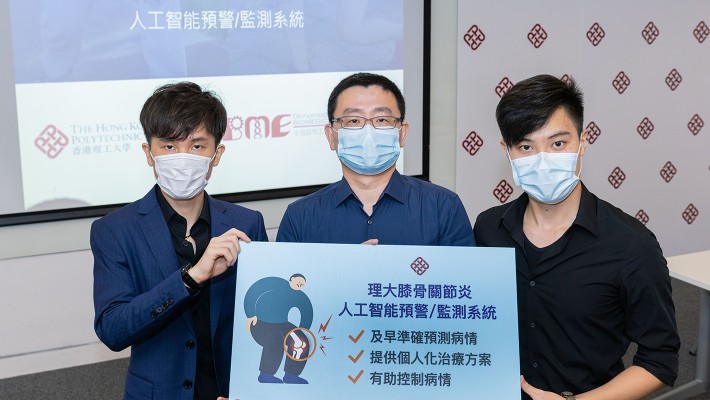PolyU develops AI-based screening system for Knee Osteoarthritis
Knee Osteoarthritis (KOA) is a chronic degenerative disease with no cure. Early detection is critical for early intervention to prevent disease progression and to reduce the need for salvage joint replacement surgery.
A team led by PolyU’s Dr Chunyi Wen, Associate Professor of the Department of Biomedical Engineering, has developed an artificial intelligence-based KOA screening system that can predict the risk of KOA progression at different time points in the future with an accuracy of 80%. The system won a “Global Innovation Award” at the TechConnect Business Virtual Summit and Showcase 2020.
The system was trained by a US Dataset with the data of over 10,000 KOA patients. It can predict the risk of KOA with basic information of the patient, such as age and daily habits, plus a medical-related questionnaire of about 20 questions completed by the patient’s family doctor.
Dr Wen noted that new KOA patients have to wait for years for treatment in Hong Kong public hospitals under the current patient flow. Their system can provide early diagnosis and therefore reduce the consultation time by up to 90%. It would also aid clinical practitioners to perform efficient triage and construct personalised treatment plans.
The team is currently applying to the Hospital Authority for the use of data of 100,000 KOA patients in Hong Kong, with the aim of enhancing the system’s accuracy to 90%. It is also applying for subsidies from the government to recruit 2,000 people for clinical tests within five years.
To learn more about the project, please have a look at the following media reports:
Hong Kong Economic Times
HK01
Oriental Daily News
Sky Post






